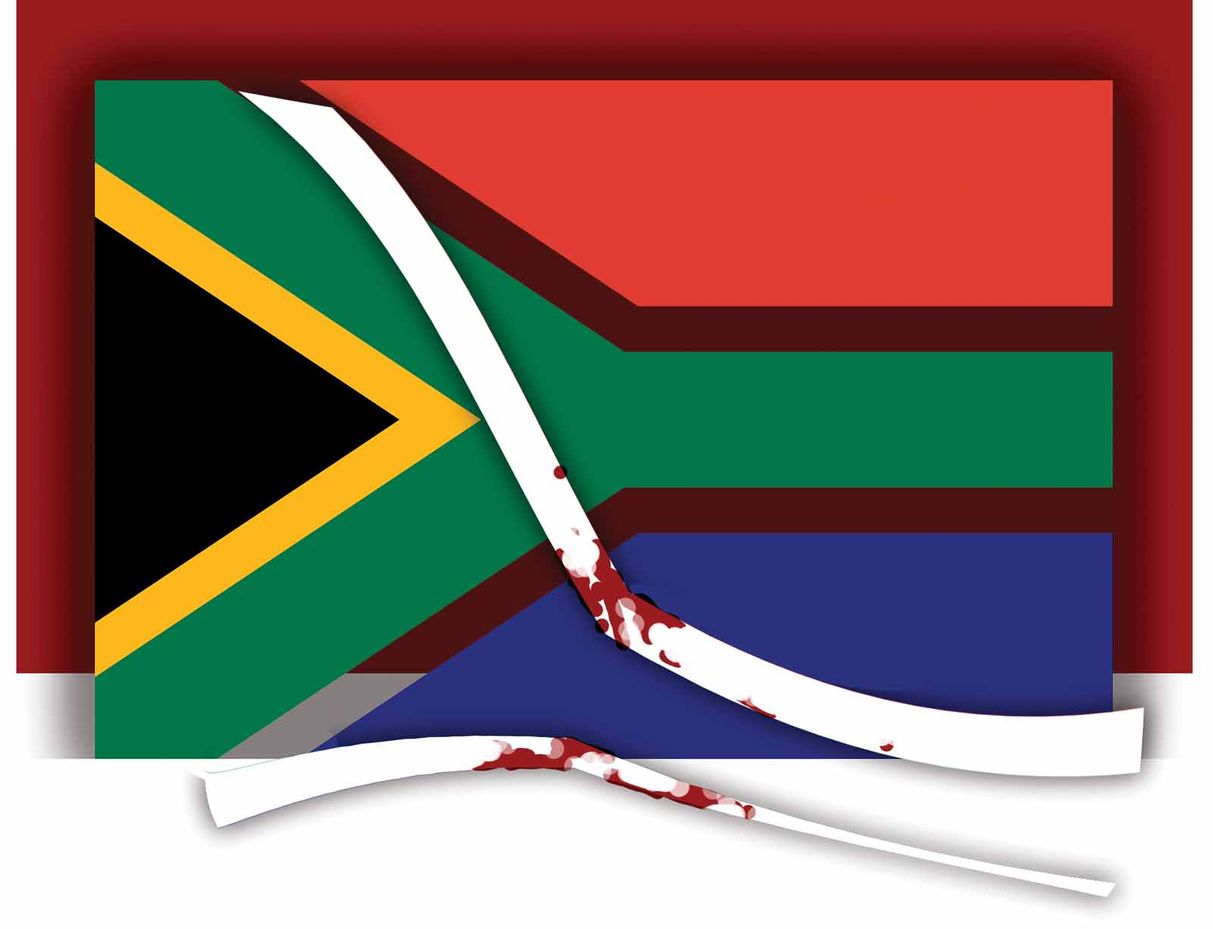
OPINION:
“My dad was a property developer as well as a part-time farmer. And yeah, some of his buddy farmers got killed. … It’s a constant battle. They’re trying to burn the farms down to chase you away,” South African professional golfer Retief Goosen said Wednesday. He was describing the racial strife in South Africa at an Oval Office meeting with President Trump and South African President Cyril Ramaphosa.
Statistics South Africa, that country’s national statistics agency, estimates that 612,000 White South Africans left the country from 1985 to 2021, about 70% of them since 2001. Since Mr. Trump offered refugee status to South African Afrikaners, who are White descendants of mainly Dutch colonizers, nearly 70,000 have expressed interest in relocating to America. Last week, 59 South African farmers arrived in the U.S.
Although the mainstream media have gone to great lengths to debunk the claim that Afrikaners are being racially persecuted because there are no reliable statistics to confirm it, South African Agriculture Minister John Henry Steenhuisen acknowledged at the White House meeting that it was a problem.
“We have a real safety problem in South Africa, and I don’t think anyone wants to candy coat that. … It’s going to require more policing resources, it’s going to require a different strategy to be able to deal with it,” Mr. Steenhuisen said. “[The farmers] have a memorial for those who have died as a result of farm attacks. And as the minister of agriculture, it is something that I am particularly exercised with, my colleagues in the police and my colleagues in the justice cluster, to start making farm attacks and stock theft a priority crime.”
The New York Times profiled racial animus in South Africa in 2020, highlighting the killing of a young, White farm manager who was strangled and tied to a pole by two Black men.
“Groups representing white farmers accuse the South African government of deliberately failing to protect them,” The New York Times reported at the time. “Some white activist groups say that what they call ‘farm murders’ represent the beginning of a ‘white genocide’ aimed at driving whites out of South Africa.”
On Wednesday, a White South African farm refugee, Alexander Boulter, joined “The Will Cain Show” on Fox News to outline their plight.
“We left because of the attacks. You can’t stay on a farm as a White person in South Africa. You know you will be killed,” Mr. Boulter said. “It’s common knowledge. You can talk to any farmer, and they will tell you every single one of them knows multiple farmers who have been brutally executed, tortured to death, have had their children tortured to death. It’s the worst types of killings.”
Mr. Boulter then said something revealing: He believes White farmers are being “scapegoated” by race-baiting politicians in the country to distract the populous from focusing on their corrupt governance, which has led to one of the highest joblessness rates in the world, power shortages and poor maintenance of critical transport infrastructure, all postapartheid.
In a January column for The Wall Street Journal, Mark Dubowitz and Elaine Dezenski of the Foundation for Defense of Democracies warned how South Africa’s government was “veering dangerously off course.”
“Three decades of African National Congress rule have delivered corruption, economic collapse and an alarming alignment with America’s enemies — China, Russia, Iran and even Hamas,” the duo wrote. “Fortunately, President-elect Trump has a golden opportunity to reorient U.S. policy toward South Africa and the entire Continent before a critical partner slips further into the enemy camp.”
That’s precisely what Mr. Trump is doing.
Just weeks after Mr. Trump’s inauguration, Secretary of State Marco Rubio skipped the Group of 20 summit in South Africa.
It was reported that Mr. Rubio and other Trump aides were furious that South Africa brought a genocide case against Israel at the International Court of Justice. The Trump administration rightly points out that the South African government has been a leader in generating global outrage at Israel after Hamas brutally attacked it on Oct. 7, 2023.
Days after the massacre in Israel, South African Foreign Minister Naledi Pandor personally called Hamas leader Ismail Haniyeh to discuss providing support to Gaza, according to the Foundation for Defense of Democracies. Last year, South Africa hosted a delegation of senior Hamas officials at the Global Anti-Apartheid Conference for Palestine.
South Africa has also joined the anti-Western BRICS framework, has hosted joint naval exercises with Russia and China after Russia’s invasion of Ukraine, and has increased its commercial ties to Iran.
In February, Mr. Trump signed an executive order halting all foreign aid to South Africa and granted Afrikaners refugee status. A month later, South African Ambassador Ebrahim Rasool was expelled from the U.S. at Mr. Rubio’s direction. Mr. Rasool was quoted as saying Mr. Trump was leading a “supremacist” movement against those in power in the U.S. and South Africa. Mr. Rubio called him a “race-baiting politician who hates America and hates [Mr. Trump].”
South Africa clearly needs a course correction. The meeting at the White House on Wednesday was Mr. Trump’s not-so-subtle way of delivering the message.
• Kelly Sadler is the commentary editor at The Washington Times.












